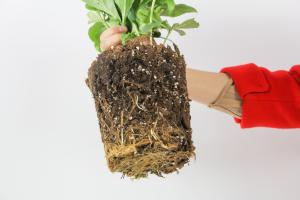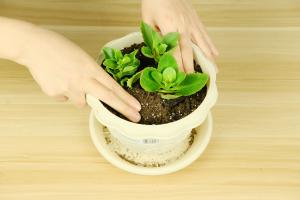Using Molasses in Water for Plants: How Much is Enough?
When it comes to gardening and plant care, there are many methods and products that can help enhance growth and yield. One such method is using molasses in water for plants. Molasses is a byproduct of sugar production and is known to contain essential micronutrients and minerals that can benefit plants. However, the question remains: how much molasses per gallon of water for plants is optimal? In this article, we will explore the recommended amount of molasses to use in water for plants.
The Benefits of Using Molasses in Water for Plants
Molasses is a natural source of essential micronutrients such as iron, magnesium, and calcium. It also contains amino acids that can improve plant growth and yield. Additionally, molasses can help increase microbial activity in the soil, which can aid in soil health and nutrient uptake by plants. Using molasses in water for plants can also act as a natural fertilizer, saving growers time and money while producing more sustainable plants.
How Much Molasses per Gallon of Water for Plants?
The recommended amount of molasses to use in water for plants is 1-2 tablespoons per gallon of water. This ratio is suitable for most plants, but it is essential to consider the type of plant and its growth stage. For seedlings, it is best to use a lower concentration of molasses (1 tablespoon per gallon) to avoid burning the plant's roots. As the plant matures, the concentration can be increased to 2 tablespoons per gallon of water.
It is also vital to note that using too much molasses in water for plants can be harmful. Excess molasses can lead to a buildup of salt and sugar in the soil, which can negatively impact plant growth and yield. Therefore, it is best to follow the recommended guidelines and adjust the concentration according to the plant's needs.
How to Use Molasses in Water for Plants
The process of using molasses in water for plants is simple. First, mix the desired amount of molasses into the water and stir until it dissolves completely. Then, water the plants as you usually would, ensuring that the soil is evenly moist. It is best to use molasses in water when watering the plants rather than spraying the foliage directly. This will help prevent any potential issues caused by excess molasses.
Conclusion
Molasses can be an excellent addition to any gardener's toolkit. Using molasses in water for plants can provide essential micronutrients, increase microbial activity, act as a natural fertilizer, and improve overall plant growth and yield. However, it is crucial to follow the recommended guidelines and adjust the concentration according to the plant's needs. With the right approach, using molasses in water for plants can help growers produce healthier, more sustainable plants.

 how many times do yo...
how many times do yo... how many planted tre...
how many planted tre... how many pine trees ...
how many pine trees ... how many pecan trees...
how many pecan trees... how many plants comp...
how many plants comp... how many plants can ...
how many plants can ... how many plants and ...
how many plants and ... how many pepper plan...
how many pepper plan...





























